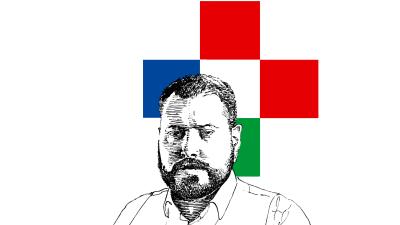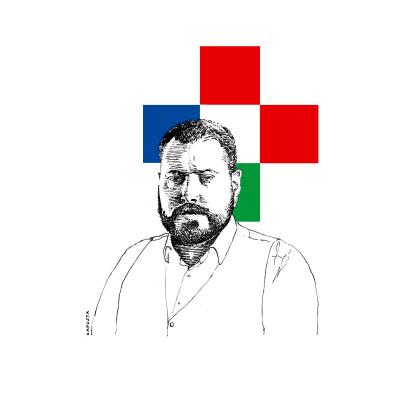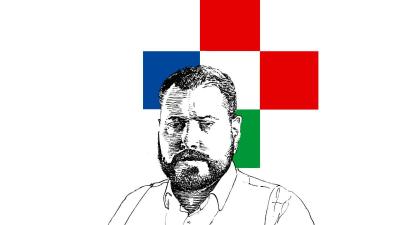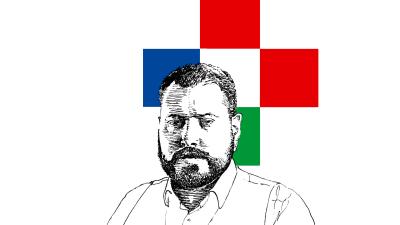Every year in mid-February, Viktor Orbán holds a major speech to take stock of the past year and announce the main lines of the coming year, while highlighting the main elements of his vision and strategy.
On Saturday 18 February, Viktor Orbán held his latest speech, where he touched on a wide range of issues: from Ukraine and NATO through family policy and the relationship with the United States up to agri-food policy, energy and inflation. Here is a summary of the main points of his speech and his vision.
War in Ukraine, NATO and the "peace camp"
As we prepare to commemorate the first anniversary of the Russian-Ukrainian war, Viktor Orbán spoke at length about the Hungarian position on this conflict. For the Hungarian Prime Minister, it is both a local conflict "between Slavs", which is not a war of good against evil, nor is it the war of Hungarians. Instead, it is a conflict that will only be resolved when the US and Russia decide to negotiate. Orbán does not expect it to happen soon – and this may well prolong the period of permanent pressure experienced since the beginning of Covid. This local conflict has been escalated by the EU in line with the will of the member states. Taking the example of Georgia in 2008, Orbán explains that it is possible to achieve peace through negotiations, but that this was impossible due to the European 'provincial mindset'. He takes the example of Germany, which was, like Hungary, "in the peace camp" and which under external pressure moved to the "war camp", causing a snowball effect in Europe.
Staying out of the war is for Orbán "the only right thing to do". Helping Ukrainian refugees is natural, he explained, going on to say that Hungary recognises Ukraine's right to defend itself but insists that it is important for him to always put Hungarian interests before Ukrainian ones. Orbán also expressed his fear that the funds allocated to him would go to Ukraine, and explained that there is no incompatibility between helping Ukraine on the humanitarian level and maintaining trade relations with Russia. "Without any relations, there can be no peace negotiations," he said, calling on Western countries to maintain dialogue with Russia. "We understand our Polish and Baltic friends, history gives them good reasons. But the others?"
"The later it happens, the higher the price for us," he said of the peace talks. For the Hungarian government, the longer the war goes on, the higher the human and material losses and the cost to the European taxpayer, without bringing any victory over Russia.
Viktor Orbán recalled that a short time ago Brussels promised that sanctions would end the war, and that this has not happened. Worse, he said, it had targeted Russia but hit Europe while Russia benefited from additional income.
For Orbán, the Hungarian position is only an exception in Europe, while everywhere else in the world national interests take precedence, unlike Europe. Moreover, in his eyes, this war has proved that Russia is not a threat to NATO as long as the conflict remains conventional.
Viktor Orbán also reminds us that Hungary's divergence in strategic position from its allies makes many forget that the objectives are still common: that Russia is not a threat to the European Union, and that there is a deep and sovereign country, Ukraine, between Russia and us.
Attacked recently by the Hungarian left and Western proxies over an alleged desire to purge the Hungarian army of "pro-NATO" cadres, Orbán clarified his position on the alliance: "It is vital for Hungary to belong to NATO. We are too far east of the Western world to give it up. [...] Following the example of Switzerland and Austria, we could play with the idea of neutrality. But we don't have that luxury. He went on to point out that NATO is a defensive alliance - an exclusively defensive one, not a war coalition.
Economy, sanctions and the 2023 programme
For the head of the Hungarian government, the West's entry into the war with sanctions has hit not Russia but the European Union. This has forced Hungary to rethink its entire economic, diplomatic, defence and law enforcement policy, a task that is nearing its end. The main line of Hungarian foreign policy remains: "continue to make friends, not enemies; try to make everyone have a share in Hungary's success. Create connections, not blocs".
A major axis of Orbán's policy is the pro-family and pro-natal policy, which remains a priority: families with children must live better than those without, Orbán said. He added that each year, one more pro-family measure will be implemented. The 13th month policy for pensioners and the policy of reducing energy bills for households remain in place. The objective of Hungarian majority control of the banking, energy and media sectors, as well as telecommunications, also remains in place. In addition to this, Orbán announced a massive investment plan for the countryside, saying it is unprecedented, "even within the former Austro-Hungarian Empire".
In addition to strengthening agriculture, a key sector of the Hungarian economy, Viktor Orbán also intends to develop the food sector with the aim of creating one or more food giants capable of becoming one of the world's leading food distributors.
To this end, Orbán intends to invest in new gas and oil pipelines, with or without the help of Brussels. Orbán also recalls that the EU had promised not to extend sanctions to energy, but has failed to keep its word. He pointed the finger at the big companies that have made huge profits on the backs of Europeans by taking advantage of the crisis, and announced special taxes on profits to finance his national policies.
Viktor Orbán also explained that the unreasonable rise in energy prices, notably due to the European policy of aligning the price of electricity with the price of gas against the will of Hungary and Poland has resulted in an explosion of inflation. 2022 will turn out to have been an even more complicated year as Hungary has not received its promised European funds under the pretext of breaching the rule of law. In Orbán’s opinion, it is not up to Brussels to monitor the member states, but for the member states to monitor Brussels. During his speech, the strongman from Budapest said that he hoped that the European elections of 2024 would bring about a change in this direction.
Finally, on the economic side, Orbán reassured his audience, recalling that despite the record inflation, Hungary has broken three optimistic records: record employment, with an unprecedented number of people employed, record exports and record foreign investment. Orbán announced that inflation would be down to less than 10% by the end of the year.
United States
Viktor Orbán also touched briefly on the tense diplomatic climate between Hungary and the United States. In addition to mentioning the millions of dollars paid to the Hungarian opposition from US funds controlled by the US government, Orbán decided to use a witty line to describe his fear. After recalling that in 2014, Clinton had sent "Goodfriend" (the name of the US “chargé d’affaires” in Hungary) to Hungary to remind Hungarians of the US position on certain issues, Orbán went on to say that Hungary now had a "Pressman" (the name of the new ambassador), and concluded by saying that he hoped he would not have to deal with a "Puccini" next time.
Read also
It's Not a Revolt, Sire, It's a Secession
At the beginning of July, we witnessed further rioting and looting across France. Although President Macron, with the nerve and arrogance only he is capable of, pretended to find this event surprising, everyone had been expecting it, at least since 2005 and the last large-scale riots in the suburbs.
Ferenc Almássy
The Trap of Legal Immigration
Since 2015, immigration has become a major issue in Central Europe where, since the fall of Soviet communism, it was rather emigration that was the main social phenomenon. However, since the famous "migrant crisis" along the Balkan route, a lot has changed. And the faces you see in the streets of Warsaw, Budapest, Prague and Bratislava are changing too.
Ferenc Almássy
What happened to the Hungarian cockade?
Pest, 15 March 1848, 8 a.m. Spring is approaching fast, the weather is finally mild after a long winter. In Pilvax, a café in the city centre close to Franciscan Square, six men are meeting. The discussions are heated, revolutionary fever has been brewing for several days.










Comments (0)